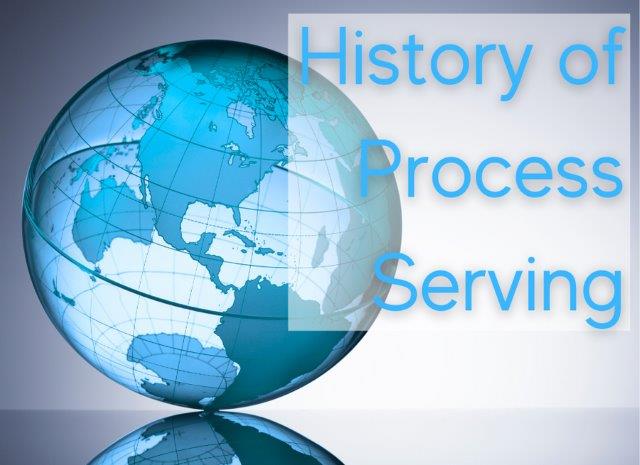Process serving has long been a part of the judicial system to ensure due process is upheld.
Due process can be looked at in two ways –
Due process for our government
This is the requirement that the state must respect all legal rights that are owed to a person. It balances the power of law of the land and protects the individual person from it. When a government harms a person without following the exact course of the law, this constitutes a due process violation, which offends the rule of law.
Due process for an individual
Presupposes that every person has certain rights encompassed within the term “liberty”. That is to say that they are free from control within a society, until such time when they are accused of an offence when they then have the right to a fair trial.
Our role as process servers is a small, but important one…
Every person who has been charged with an offence, or is involved in a proceeding, must be notified in order for them to respond to the allegation. This is an individual’s legal right, and this is where process servers often come in.
So where does the term “due process” come from, and when was the concept first introduced? It may be further back than you think. The phrase ‘due process of law’ comes from statutes that were founded in the Magna Carta – over 800 years ago.
Magna Carta – A SYMBOL OF LIBERTY
Magna Carta, which means ‘The Great Charter’, is one of the most important documents in history as it established the principle that everyone is subject to the law, even the king. It guarantees the rights of individuals, the right to justice, and the right to a fair trial for all.
In 1215 King John agreed to the terms of the Magna Carta following the uprising of a group of rebel barons in England. The barons captured London in May 1215 and forced King John’s hand to finally negotiate with the group, and the Magna Carta was created as a peace treaty between the king and the rebels.
These days much of the Magna Carta is not actually part of the law of the land in England, or here in New Zealand. Much of it was specific to the times and deals with concerns specific to medieval England. But it does stand as a powerful symbol for the principles of justice and equality that underpin modern human rights today. It has been invoked as a symbol of liberty by many well-known champions for human rights, including Martin Luther King and Nelson Mandela.
There are some core principles of Magna Carta that remain part of our law and constitution. What is probably the most famous clause of Magna Carta is still on the statute books in New Zealand. It states:
“No freeman shall be taken or imprisoned, or be disseised of his freehold, or liberties, or free customs, or be outlawed, or exiled, or any other wise destroyed; nor will we not pass upon him, nor condemn him, but by lawful judgment of his peers, or by the law of the land. We will sell to no man, we will not deny or defer to any man either justice or right.”
Constitutions are concerned with public power. They limit, regulate, and confer the power of a State over its people.
New Zealand’s Constitution
In New Zealand we do not have a grand, overarching constitution document like the Constitution of the United States. Our constitution is spread across Acts of Parliament, legal documents, decisions of the Courts, and generally accepted practices or ‘conventions’. Put together, these define what the major institutions of government are, what powers they have, and how they can use them.
The key principles of the rule of law in New Zealand constitution state…
- Everyone is subject to the law, including the Government
- The law should be clear, and clearly enforceable
- There should be an independent, impartial judiciary
The concept of due process is reverberated throughout New Zealand law. In the New Zealand Bill of Rights Act 1990, section 25 it clearly states that every person who is charged with an offence has the right to a public hearing and a fair trial in a court.
Process of service continues today as an
integral part of our legal system
Process servers are not bearers of bad news, but rather, they ensure an individual’s right to due process, upholding the rights of New Zealand citizens. Their diligence ensures that each citizen is properly notified of their involvement in legal proceedings so that their rights are upheld.
The future of process serving
Already technology is changing the landscape of process serving and will likely do so into the foreseeable future. Other methods of service are becoming more accepted, especially in this post Covid world. However, the fundamental principle remains – that all Individuals have the right to due process. And in many cases personal service via a process server continues to be the only way to ensure this.

